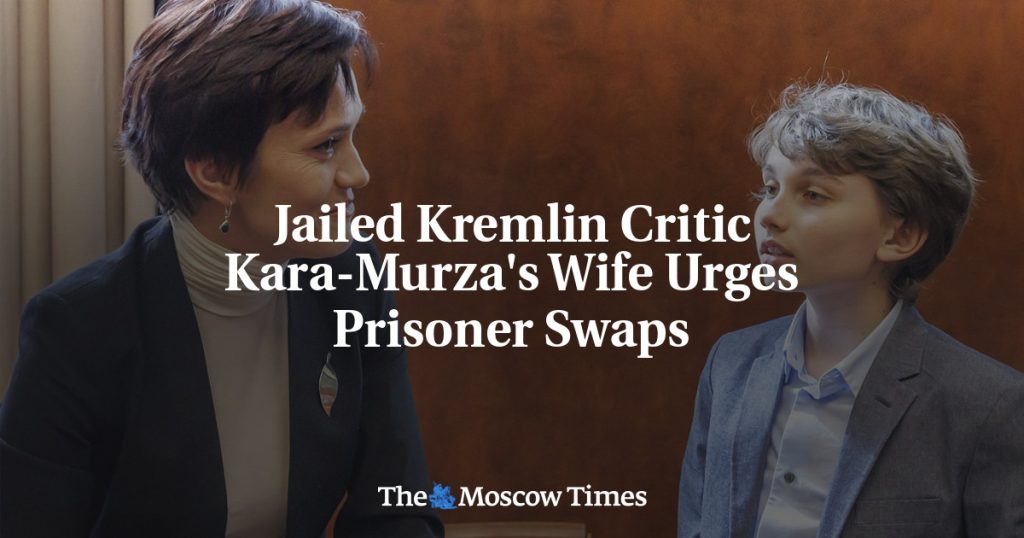Evgenia Kara-Murza, the wife of imprisoned Kremlin critic Vladimir Kara-Murza, expressed her support for prisoner exchanges to secure the release of her husband and other political prisoners in Russia. Following the recent death of opposition activist Alexei Navalny in a penal colony, Navalny’s team claimed that negotiations for his release as part of a prisoner swap were in the final stages before his passing. While Evgenia Kara-Murza stated that she was unaware of any active negotiations for her husband’s release, she believed that such exchanges were possible and had been used in the past to free dissidents during the Soviet era.
Speaking at an event organized by the United Nations correspondents’ association ACANU, Evgenia Kara-Murza highlighted the urgent need to secure the release of political prisoners in Russia, including her husband. Due to limited communication with him, she admitted that she was unsure whether Vladimir Kara-Murza would agree to leave if given the opportunity. However, she emphasized the importance of using all available methods to save the lives of those at risk, particularly in cases involving human lives and the continued suppression of dissent in Russia. The potential for prisoner exchanges to secure the release of political prisoners was seen as a viable option in light of recent events.
The death of Alexei Navalny has raised concerns for the safety and well-being of other Kremlin critics imprisoned in Russia, such as Vladimir Kara-Murza. With the tragic outcome of Navalny’s imprisonment casting a shadow over the fate of political detainees, there is growing international pressure to address the ongoing human rights abuses and persecution of dissenting voices in Russia. Evgenia Kara-Murza’s advocacy for prisoner exchanges as a means to secure the release of political prisoners reflects the urgency of the situation and the need for concerted action to protect those at risk.
The issue of prisoner exchanges as a diplomatic strategy to secure the release of political prisoners has been a controversial yet effective approach historically. Evgenia Kara-Murza’s assertion that such exchanges were used during the Cold War era to free dissidents suggests that there is precedent for this method of negotiation. While the specifics of any potential negotiations for her husband’s release remain uncertain, the broader call for diplomatic efforts to address the plight of political detainees in Russia underscores the need for international intervention.
The plight of Vladimir Kara-Murza and other political prisoners in Russia is a stark reminder of the ongoing crackdown on dissent and human rights in the country. The recent death of Alexei Navalny has intensified concerns about the safety of Kremlin critics and underscored the need for urgent action to protect their lives. Evgenia Kara-Murza’s advocacy for prisoner exchanges as a potential means to secure the release of her husband and other political prisoners highlights the gravity of the situation and the imperative for diplomatic intervention to address the human rights abuses in Russia.
In conclusion, the call for prisoner exchanges to secure the release of political prisoners in Russia represents a critical step towards addressing the ongoing human rights violations and persecution of dissenting voices in the country. The tragic death of Alexei Navalny has heightened concerns for the safety of remaining Kremlin critics, including Vladimir Kara-Murza, and underscored the urgent need for international intervention to protect their lives. Evgenia Kara-Murza’s advocacy for diplomatic efforts to secure the release of her husband and other political detainees reflects the pressing need for action to address the escalating human rights crisis in Russia.


